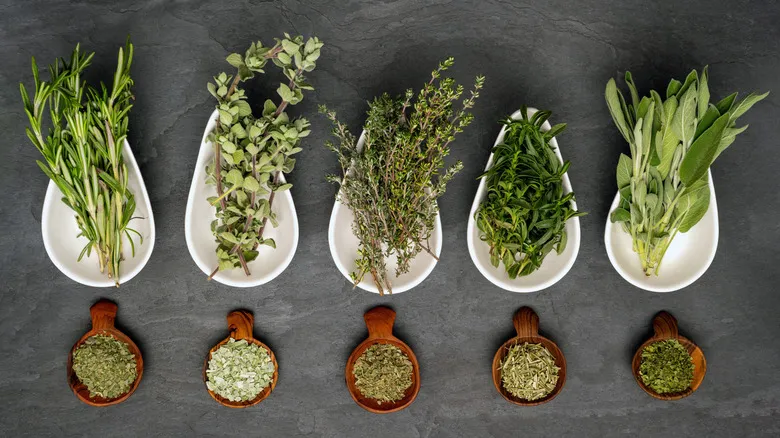A few exceptions to the rule
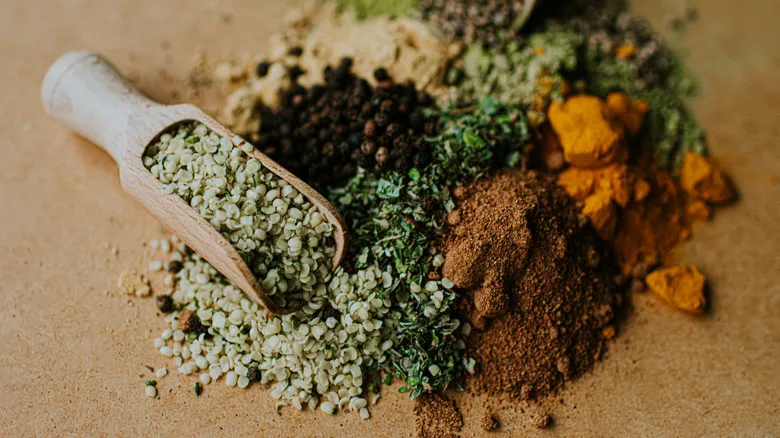
Not all spices follow the same guidelines. For garlic, use half a teaspoon of powder for each fresh clove. When it comes to ginger and turmeric, opt for a quarter teaspoon of ground spice for every teaspoon of fresh. For a medium fresh onion, you'll need 1 teaspoon of onion powder. Ground herbs have a more intense flavor, so reduce the amount of dried leafy herbs by half; for every tablespoon of fresh herbs, use half a teaspoon of the dried version.
When substituting dried herbs for fresh, it's important to adjust not only the quantity but also the timing of their use. Dried herbs should be added at the start of cooking, while fresh herbs are best added towards the end. Prolonged heat can make fresh herbs taste bitter, so for dishes that require long cooking times, dried herbs may be the better choice.
To avoid herbs turning to mush, consider drying or freezing any surplus you have. You can dry fresh herbs in the microwave or try Alton Brown's technique, which involves using a box fan and air filters for preservation.
Recommended
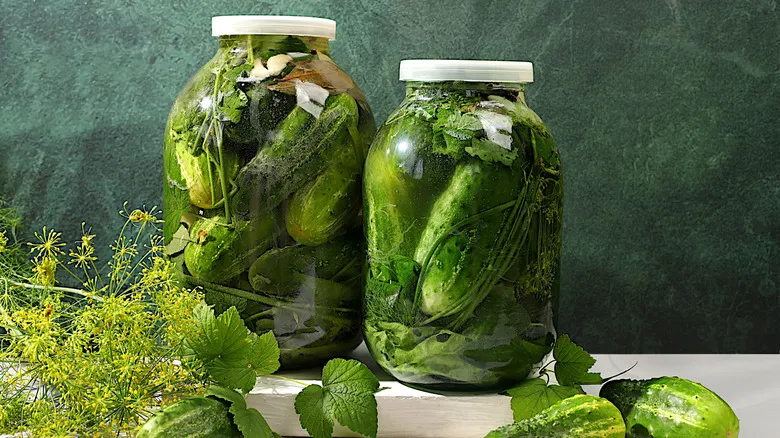
Your Vinegar's Acidity Matters When Making Homemade Pickles

How To Choose The Best Grapefruit At The Grocery Store Every Time
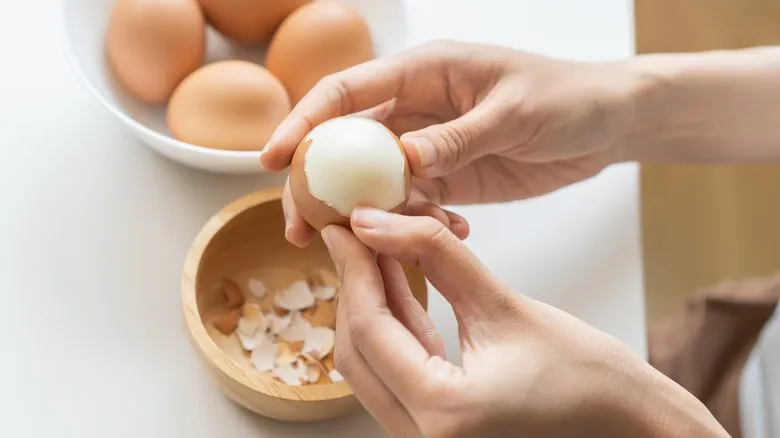
Is It Better To Peel Hard-Boiled Eggs When They're Hot Or Cold?
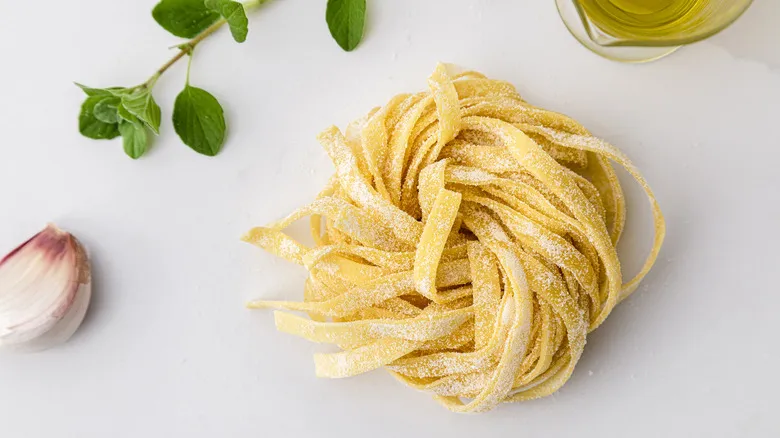
When To Use Fresh Vs Dry Pasta
Next up

